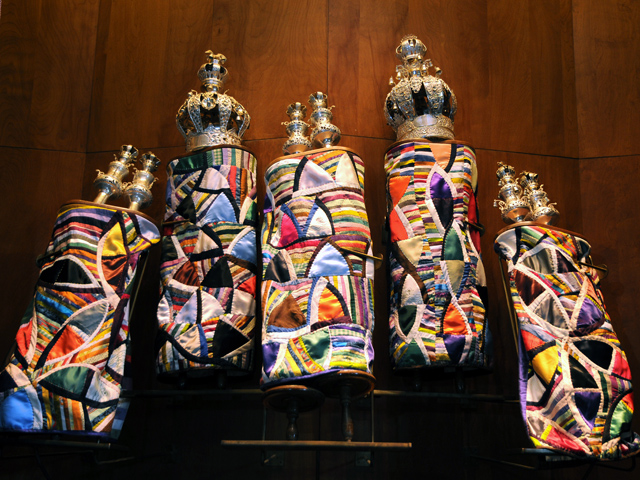I asked one of my frequent writers to consider the objections some people (examples here and here) have to some certain topics on Balaboostas. Some people on the discussion forum were worried the knowledge that other Frum women get different Psakim would be too threatening to their Judaism and that’s why the forum is dangerous. Ilana strongly disagreed.
I had a teacher in seminary who said that everyone has to have a “Baal Teshuvah” moment at some point in their life. She recommended to my fellow frum-frum-birth classmates (I was only one of a few Baal-Teshuvahs) that if this hadn’t happened yet, seminary was a good time for it to occur. What she meant by this was that at some point, in order to be a fully functional, happy adult, your way of life has to be a conscious choice. Indeed, the Tanya, a Sefer that is very important to my life and my take on Judaism, speaks extensively about Mitzvos that are done by route, or by habit. Although this is better than not doing Mitzvos at all, it is by no way the way Judaism is meant to be practiced. It is supposed to be an alive, precious thing that incorporates our hearts and intellects fully.
This involves more of an emphasis on the individual than we are accustomed to in day-to-day frum life, which focuses on the communal or family good rather than the individual good. However, what I have learned as a Baal Teshuvah is that individual life is at least as important as communal life. One cannot be a member of the community and contribute their unique G-dly spark to the world if they haven’t realized themselves as individuals. And most importantly, one’s connection to G-d must be personalized and personally confirmed. This is why we Daven Shemoneh Esrei alone, even while standing among a Minyan. My individual journey to Judaism, what made me devoted and committed to a Torah way of life, are necessary parts of my daily observance. Because what connects me is real and internal, I remain committed and engaged throughout all the different cycles of my life’s journey. The experiences I went through are personal, and actually don’t involve anyone but my own self. There’s not really some fantastic story with a plot and a happy, neat ending I can tell at farbrengens for high school girls.
So it puzzles me when people seem to encourage others to go through life, not to mention committed observant life, without the introspection necessary to make it meaningful and real. How is that a permanent solution to people who struggle because they never decided to be religious but are repeating habits that were ingrained in them? All of this applies, by the way, to the Derech one chooses within Judaism. If it is not one that resonates with you, and if your Rav is not someone whose opinion and knowledge you respect above all other temptations of laxity or freedom, then what are you doing in your Derech of Judaism? It is a dangerous question to ask, but the answers will inspire growth, like a jog where you run just a little faster than you think you can manage or do a math problem slightly above your level of comprehension. It is something hard, and something scary, but something so worth doing that it might not be worth long-term halachic observance without these questions being broached. Is it better than completely abandoning Halacha? Sure! But it’s no place in which to feel secure and complacent.
In light of this view on life and religion, I don’t understand in the least why someone would think a discussion group about how different people within Halachic Judaism practice or Pasken. If the way other Jews live makes someone feel malcontent or disrupts their Shalom Bayis, what was their Judaism and Shalom Bayis about besides for their habits? Was it ever something they chose and feel committed to beyond the call of inertia? If it isn’t, well, it’s time to Chozer B’teshuvah.

